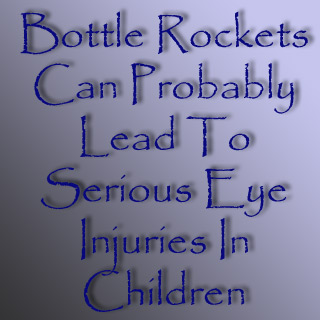
During the study, 11 eyes in eight boys and two girls aged 18 years or younger with eye injuries by bottle rockets between 2006 and 2009 were evaluated. Eight study subjects were injured within a month. While eight were launching bottle rockets at the time of injury, two were bystanders. None of the volunteers were using protective eyewear at the time. Seven eyes had defects in the epithelium lining the cornea, six injuries were caused because of bleeding in the front of the eye and retinal dialysis or a type of retinal tear took place within one eye. Even one eye had bleeding into the eye’s vitreous fluid.
Authors comment, “This study demonstrates that bottle rockets can cause significant ocular injury in children and adolescents and, in turn, cause their parents and themselves to incur expenses through emergency department visits, surgical interventions and days missed from school and work. If children, adolescents and parents choose to launch bottle rockets, it is important for parents not only to supervise children and adolescents in the vicinity of bottle rockets but also to ensure that protective eyewear is being used.”
A total of eight eyes possibly required initial treatments like surgical removal of the lens or corneal debridement, wherein the damaged corneal tissue has to be excluded. Mehnaz Kahn, M.S., and colleagues at Vanderbilt University Medical Center, Nashville, subjected three patients to additional procedures, such as muscle surgery and placement of a new lens. From the 10 eyes with follow-up, the most recent visual acuity apparently was 20/30 or better in four eyes and 20/200 or worse in six eyes. Traumatic maculopathy, or damage to the part of the retina responsible for central vision may result in permanent visual impairment.
The study appears online and will be published in the May print issue of Archives of Ophthalmology, one of the JAMA/Archives journals.
